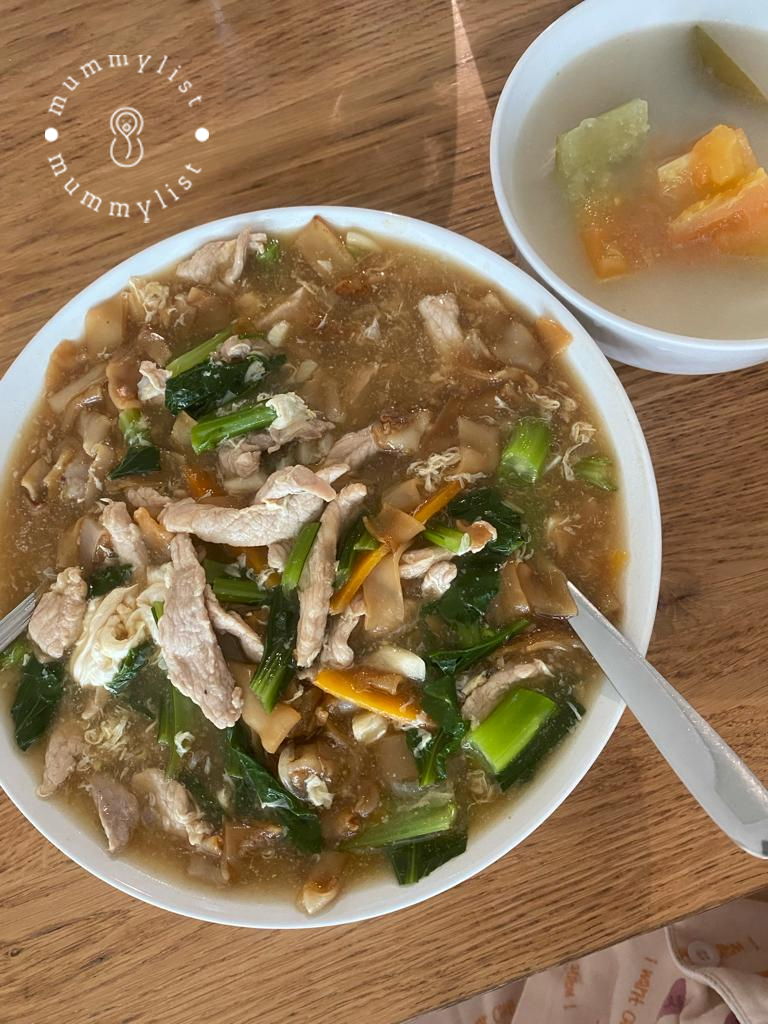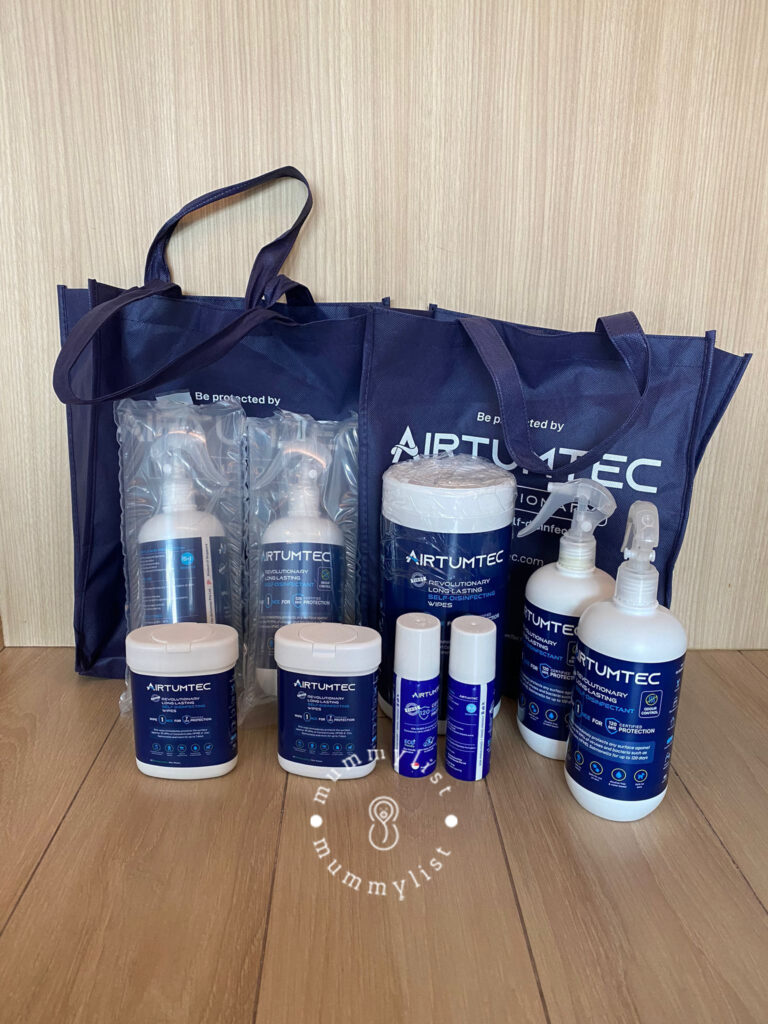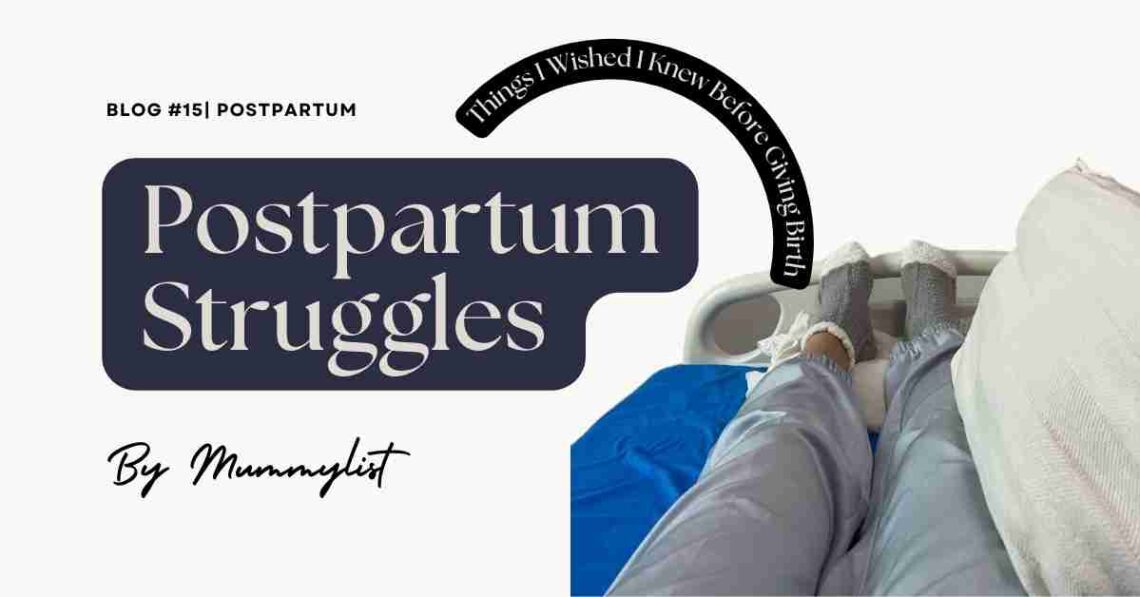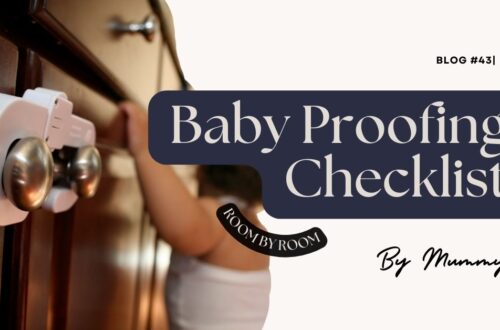I only recommend products and services that I use myself. This post contains affiliate links. If I you use these links to buy something I may earn a commission at no additional cost to you to support the on-going maintenance of the site. You can read the full disclaimer here.
It’s about time for some real talk about postpartum recovery realities. Having undergone a two-month confinement myself, the challenges I faced during my two-month recuperation is still fresh in my mind. I remember, all I could think about then, was why no one warned me about all these difficulties before.
So here I am now. 6 months postpartum, to share an unfiltered and raw POV of the struggles I went through. To be clear, my aim is not to frighten future parents but to prepare them mentally for what lies ahead.
Mothers-to-be, please send this to your partners to prepare them too!
Postpartum Physical Struggles
I’ll start with the obvious – the physical struggles because that was a huge part of what I went through personally. Caveat: I went through a planned C-section delivery, hence my experiences might differ from those who plan to undergo a vaginal delivery.
Painful C-Section Recovery
As a person who has suffered from debilitating period cramps (where I can black out from the pain) my entire life, I did not expect the recovery from a caesarean section to be as tough as it was.
Simple tasks like getting out of bed, walking, bending over, and even laughing or sneezing, took incredible amounts of effort. Although many times I did question if it was from the pain or the fear of pain.
My coping strategy? Apart from sticking to the schedule of prescribed painkillers diligently, and slowly increasing physical activity? I got a HOSPITAL BED for my recuperation. Yes you read that right. Because my master bedroom’s bed is a tatami styled one, it was extremely unsuitable for C-section recuperation.

The hospital bed was key in helping me get into a sitting position independently without exerting my core at all! Plus there were railings for me hold onto and support me while getting into a standing position. HUGE recommendation to get one if you can. If not, get some bed railings – trust me, it’ll be a huge help!
Unexpected Pains of Breastfeeding
To be honest, my initiation into motherhood was marred by extremely painful breastfeeding experiences. And this is after I’ve gone for prenatal classes, engaged TWO lactation consultants prior to delivery, and consulted ONE lactation consultant in the hospital post delivery. I thought I had prepared myself thoroughly, but boy I couldn’t be more wrong.

Here are some of the painful experiences I went through daily include:
- Due to my baby’s torticollis condition, she was not able to latch well. This resulted in a lot of pain for me. My nipples cracked and bled many times over during the many times we tried. This is even with the help of a lactation consultant who came to my house to help. This eventually led us to stop attempting latching – an unfortunate outcome which I had hope to avoid.
- Shortly after the first week, I started experiencing Vasospasm. A condition that resulted in pins & needles (at best) and shooting pains (at worst) in my nipples. Thankfully it went away after the second month or so.
- These issues led to extremely sensitive nipples which hurt whenever they were in contact with my bra. What helped eventually were breast pads which helped cushion and minimize the abrasion.
- Engorgement (breast tissue expansion while building milk supply) and clogged ducts (that result backlogged milk getting stuck) resulted in some of the most painful experiences in my life. Just imagine your breasts getting rock hard from being too full, and feeling like it’s going to explode – that’s roughly what it feels like. I cannot count how many tears I’ve shed over these issues but fortunately I also found reliable help that helped me tide over (See under Breastfeeding in Resources page)
So many times, I wondered why aren’t there more resources available to help mothers mentally prep for this. If you have come across any, please let me know so I can add to my list of resources for mothers-to-be.
To round up this section, I just want to allay your fears that these pains do eventually all go away. In my case it was when my milk supply established around the third month.
For more insights, including tips on breastfeeding essentials and supplements, visit these informative articles:
- Breastfeeding Essentials: How Much I Spent In the First 6 Months?
- Breastfeeding Supplements I Eat While Pumping > 1L A Day
Insatiable Hunger Pangs
Here’s something really unexpected – The experience of extreme hunger during my postpartum recovery period.
Looking back at what I consumed during confinement makes me wonder how I managed to fit all that food in my tiny body. While my PEM confinement nanny was doing a great job at keeping me full, I was consuming insane amounts of food almost every 2-3 hourly.

My meal portions looked like they were meant to feed a sumo wrestler when I’m just a petite sized lady. At some point, I noticed that my husband was looking on at me in amusement and partial horror as I inhaled bowl after bowl of rice / noodles/ carbs + meats like nobody’s business. Many times he would ask my nanny if she’s cooking way too much for our lunches and dinners, only to be proven wrong when I cleared all the dishes in a heartbeat.
My coping strategy? Keep a stash of snacks (from lactation cookies, healthy salads, and more) because you will get hungry in between meals. This is on top and above eating nutrient-dense, and balanced meals. This way you can ensure you get all the necessary nutrients to recuperate well!
The Intensity of Sleep Deprivation
While I never was one who needed a lot of sleep, I finally understood why people used sleep deprivation as a torture technique.
Both my husband and I were running on pure adrenaline for the first week. Until exhaustion kicked in after days of 1-2 hour sleep cycles. What happened next? My husband started looking like a shell of his former self. And I started to doze off any and every where, and also started hallucinating. Some hallucinations include thinking that I already woke up to pump when I didn’t, that someone came into my room when no one did. I really got scared at that point.
Looking back, I’m so thankful that there were so many other people in the house to help care for my baby then, because I knew my mental state was not ideal. While I looked like I was alright on the outside, my mind was operating only at like 50% capacity.
My tip for future mothers? Plan for extra help (where possible) to allow you time to rest. Schedule naps whenever baby sleeps, and DO NOT be tempted to spend time on social media. Nothing should eat into your sleeping time because it’s already soooooo little.
Postpartum Mental and Emotional Challenges
Physical stressors aside, there was also a rollercoaster of mental and emotional struggles during the postpartum period. As a new mother, here were some of the few that really tested my resilience and mental health.
Feeling Inadequate Due to Latching Concerns
Prior to delivery, and even post-birth, I was always of the opinion that “Fed is best”. And did not (and still do not) have a preference as to whether baby was formula or breastfed. Hence, I was surprised by the overwhelming feelings of inadequacy when my baby was unable to latch properly due to her torticollis condition.
Despite my efforts and consultations with lactation consultants, baby was unable to latch well without stressing herself out, or hurting me. This situation made me severely question my capability as a mother for not being able to do something that most mothers seem to be able to do.
Thankfully, I had a listening ear in my maternal wellness counsellor. She assured me that feeding struggles are quite common, just not openly discussed, which helped me accept the situation.
Anxiety Over Baby’s Safety (SIDs)
An over-worrier by nature, the constant fear of Sudden Infant Death Syndrome (SIDs) haunted me. This resulted in my obsessively checking the baby monitor all the time to ensure my baby was breathing. Before I took my naps, I always made it a point to check the monitor before I can sleep assured.
What eventually helped was educating myself about safe sleep practices and discussing my fears with my paediatrician who provided some relief. Trusting in the safety measures in place helped significantly reduce my anxiety.
Concern for Confinement Nanny’s Well-being
Having heard many horror stories of how confinement nannies fell asleep on their watches to disastrous outcomes, I couldn’t really completely relax at the initial phase of my confinement. After all, the confinement nanny was a complete stranger to us at the beginning.
This resulted in me watching over the CCTV every so often, worried about my confinement nanny’s level of exhaustion as she cared for my baby.
In the end, I decided that open communication was key. I spoke with the nanny about her needs, and constantly reminded her that she should always flag up to us should she need extra rest during the day if it was a rough night to get adequate rest.
For more insights into the duties of a confinement nanny, do check out this informative article:
Feeling Rejected When Baby Prefers Others:
Logically, I knew that baby might prefer my husband or nanny because they were the primary caregivers for her during the initial phase of my confinement.
What I did not expect was the wave of sadness and feelings of rejection that just overwhelmed me whenever baby acted calmer with my husband or the nanny but fussed a lot with me. There were so many times I cried in my husband’s arms asking him why my baby did not recognize her mother or why she did not love me.
Looking back, it’s probably easy to just attribute it to the hormones. But my feelings then were incredibly raw and vulnerable, and I was lucky to have my husband and counsellor help me understand that babies just respond differently to people and that it wasn’t a reflection of my mothering skills that helped me cope.
Feeling Helpless Due to Physical Constraints Postpartum
The post C-section pain not only restricted my ability to care for my baby actively postpartum, but also live my life normally. This made me feel extremely incompetent and reliant on others for basic tasks. Imagine having to have someone else wipe me dry after a shower and assist me with putting on my clothes because I could not bend down.
Fortunately, I’m one who knows how to accept help when needed. Hence it took just a while for me to come to terms that my recovery will take time and allowing myself to heal was crucial. And with my quick recuperation, I was ready to care for baby more actively in the second month.
Worry Over Baby’s Exposure to External Environments
Being an IVF mum, I was very cautious during my pregnancy, always prioritizing safety. This vigilance continued after my baby’s birth, given her young age and vulnerability.
To minimize risks, I kept my baby indoors for the first three months, even after the confinement period. However, necessary outings, like health check-ups, were a source of anxiety due to potential exposure to germs and viruses.
In the end, I just did what I could with as many precautionary measures as possible. For instance, using protective products like Airtum Tec sanitizers and Happy Noz Virus Guard, visiting the doctor during less busy hours, and opting for Dr. Anywhere’s home vaccination programme.

Thankfully it has kept baby safe for the past 6 months
These emotional and mental challenges during confinement are seldom talked about, yet they are as real as the physical ones. It’s important for new mothers to know they are not alone in these experiences. Seeking support, whether through family, friends, or professionals, is crucial during this vulnerable phase.
Reflections on My Postpartum Struggles
As I put down my memories from the early postpartum days down into words, I can still vividly recall those emotions I felt as I went through these struggles.
The truth of the matter is that the postpartum period is a difficult one. I wished that more people would not sugar coat the fact and that there are more helpful resources around so that parents-to-be can adequately prepare themselves (both physically and mentally) on what lies ahead.
To parents-to-be, here are some of my final tips to you:
- Equip yourself with all the necessary information before delivery so that you will not be caught unaware when the time comes. This includes information on breastfeeding, maternal mental wellness postpartum, baby care and more. See Resources Page for more info!
- Assemble your village. There is plenty to be done postpartum, and it should not fall on the shoulders of the recuperating mother. So gather help where possible to help her get her much-needed rest. Be it family or paid help, make sure they are all briefed on the parent’s wishes and boundaries.
- Prioritize the mother’s well-being. Seek help when needed, and understand that it’s okay to not have everything figured out on Day 1 or even Week 1. Remember, every mother’s journey is unique, and it’s essential to find what works best for you and your baby.
For more resources and personal experiences on the pregnancy and postpartum journey, check out our other posts below. All the best in your preparation! 🙂







One comment on “Postpartum Recovery in SG: Struggles That No One Talks About”